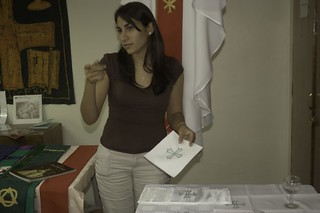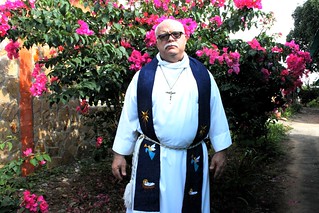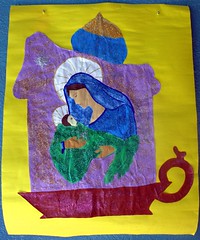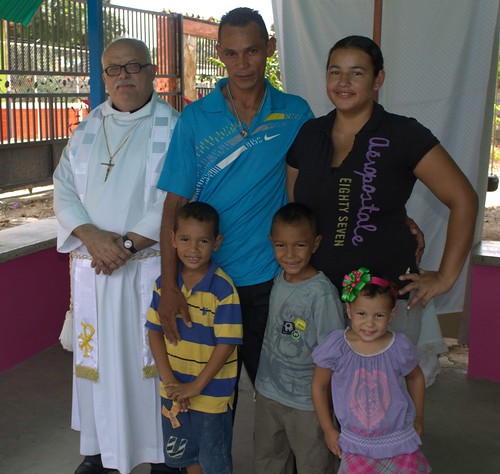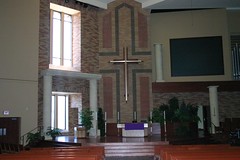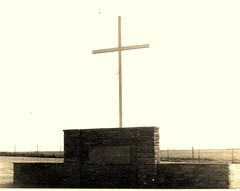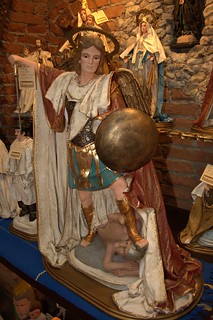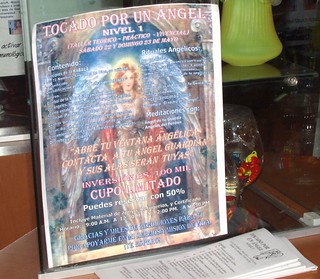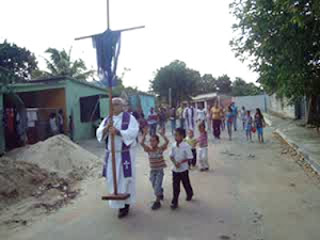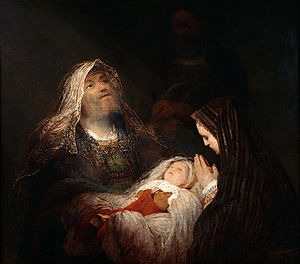The sharing of the peace is an act of reconciliation that serves as a transition between the service of the Word and the service of the Lord’s Supper in the liturgy. It is not to be understood as a moment of informality in which everyone shares a sociable greeting. United in holy Baptism, confession and abolution of sins, the congregation prays for unity in the church and just peace in the world, and. Then the members of the congregation offer forgiveness and reconciliation to one another before approaching the altar for holy Communion.
The sharing of the peace fulfills the admonition to “greet one another with a holy kiss” repeated in Romans 16:16; 1 Corinthians 16:20; 2 Corinthians 13:12: and 1 Thessalonians 5:26, and “Greet one another with a kiss of love” (1 Peter 5:26). It was the widespread custom in the ancient Mediterranean world for men and women to greet each other with a kiss. (Judas, of course, betrayed Jesus with a kiss.) As the epistles from the beginning were read in the context of public worship, the sharing of the peace also was incorporated in to the liturgy (although the form may have changed from a kiss to a handshake over the centuries), after prayer and before the sacrament, on the basis of Matthew 5:23-24: “Therefore if you bring your gift to the altar, and there remember that your brother has something against you; Leave your gift there before the altar, and go your way; first be reconciled to your brother, and then come and offer your gift.”The word translated as “gift” is δῶρον (dóron) which also means “offering” or “sacrifice”. The sacrament of the altar is sacrificial in this sense: We present ourselves as living sacrifices in gratitude for the Lord’s gift of His body and blood. That the early church understood both the sharing of the peace and the sacrament in this way is affirmed in the Didache, an early Christian catechism, the sermons of St. Augustine and other post-apostolic writings.
 |
| Nury de Milian. |
Looking forward with LeadaChild
Although the COVID-19 panic is over, the country continues to feel the impact of school closures due to the pandemic and subsequent threats of teacher’s strikes. Because of low pay and poor working conditions,, 68,000 teachers from elementary, middle and high schools left the country. between 2018 and 202. In January 2023, hundreds of Venezuelan teachers took to the streets to demand higher wages and the restoration of collective bargaining rights, including social and medical insurance. Because of these problems, many schools in the last academic year, were open for classes only two to three days per week.
 |
| Victoria and Victor. |
We have 22 children enrolled in our preschool for the 2023/2024 school year. Two of them from last year visited us this week, Victoria Sofía and her younger brother, Victor. Victoria, who is hearing-impaired, was one of our special needs students. Victor will be attending the preschool again this year.
Luz Maria already has started her afterschool tutoring with five students. We have 15 young people attending our youth Bible study on Sunday afternoon. They have been memorizing the books of the Old Testament and looking for examples of both Law and Gospel in the Old Testament. Before begnning the New Testament, we had a study focused on the doctrine of justification and how it relates to both Law and Gospel.On the evening of September 21, we met in videoconference with representatives of Concordia El Reformador Seminary, pastors and deaconess students from across Latin America as we began the online course, “Diaconal Practice 2”. The seminary has 84 women in the entire region of Latin America and the Caribbean enrolled in the new fall cohort of its deaconess training program, 25 of them from Venezuela. The three-year program includes in-person intensive courses, online classes, readings, projects, exams and practical application of the classroom material with supervision and guidance from the local pastor and deaconess mentor in the home country. Luz Maria is a deaconess mentor for Venezuela. Also directing the program in Venezuela are Pastor Eliezer Ángel Mendoza, director of the Juan de Frías Theological Institute; Ginnatriz, his wife who is also a deaconess; and deaconess Elsy Valladares de Machado.
 |
| Deaconess Danelle Putnam. |
Merry Michaelmas!
The Feast of St. Michael and All Angels, also known as Michaelmas, is celebrated on September 29. Philip Melanchthon wrote a hymn for the day that is still sung in Lutheran churches: "Lord God, We All to Thee Give Praise". St. Michael’s Lutheran Church of Bloomington, Minnesota, was my sending church when I first arrived in Venezuela as a volunteer and still supports our mission. St. Michael was the guardian angel of Israel in the Old Testament, and now is understood as the protector of the new Israel, Christ’s church. Although we believe that both angels and the church triumphant pray for the church on earth (Apology of the Augsburg Confession, Article XXI), the souls of the departed do not communicate with us directly and the holy angels only do and say what God directs of them. So we do not invoke them as mediators, for there is only the one Mediator between God and men, Jesus.
“And at that time shall Michael stand up, the great prince who stands watch over the sons of your people: and there shall be a time of trouble, such as never was since there was a nation even to that same time: and at that time thy people shall be delivered, every one that shall be found written in the book. And many of those that sleep in the dust of the earth shall awake, some to everlasting life, and some to shame and everlasting contempt. Those who are wise shall shine as the brightness of the firmament; and they that turn many to righteousness as the stars for ever and ever.” Daniel 12:1-3
Oh everlasting God, who has ordained and constituted the services of angels and men in a wonderful order, mercifully grant that, as your holy angels always serve you in heaven, so by your divine appointment may they help and defend us on earth. Amen.




